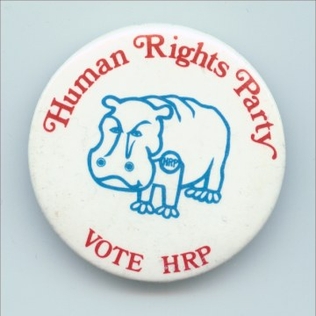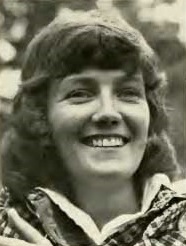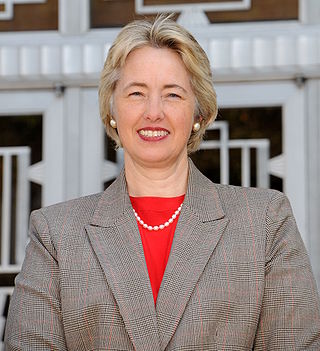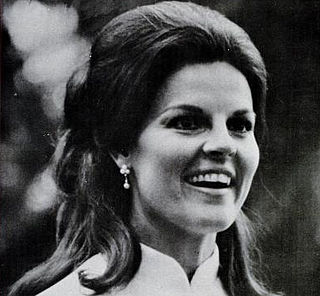
The Human Rights Campaign (HRC) is an American LGBTQ advocacy group. It is the largest LGBTQ political lobbying organization within the United States. Based in Washington, D.C., the organization focuses on protecting and expanding rights for LGBTQ individuals, including advocating for same-sex marriage, anti-discrimination and hate crimes legislation, and HIV/AIDS advocacy. The organization has a number of legislative initiatives as well as supporting resources for LGBTQ individuals.

Kathryn Jean Whitmire is an American politician, businesswoman, and accountant best known as the first woman to serve as Mayor of Houston, serving for five consecutive two-year terms from 1982 to 1992. From 1977 to 1981, she was the city controller, a position which made her the first woman elected to any office in the city. Whitmire drew national attention when she defeated former Harris County Sheriff Jack Heard in her election as mayor. The election drew national focus because it symbolized a major political realignment in the fourth-largest city in the United States.
The Log Cabin Republicans (LCR) is an organization affiliated with the Republican Party which works to educate the LGBT+ community and Republicans about each other.

The Human Rights Party (HRP) was a left-wing political party that existed in Michigan from 1970 to 1977. The party achieved electoral success in Ann Arbor and Ypsilanti. It eventually expanded to include several other Michigan cities with large student populations. In 1975, the HRP became the Socialist Human Rights Party (SHRP), and it later merged with the Socialist Party of Michigan.

Elaine Noble is an American politician and LGBT activist who served in the Massachusetts House of Representatives for two terms starting in January 1975. She was the first openly lesbian or gay candidate elected to a state legislature. She served two terms as representative for the Fenway-Kenmore and Back Bay neighborhoods of Boston.

LGBTQ+ Victory Fund, commonly shortened to Victory Fund, is an American political action committee dedicated to increasing the number of out LGBTQ+ public officials in the United States. Victory Fund is the largest LGBTQ+ political action committee in the United States and one of the nation's largest non-connected PACs.

Annise Danette Parker is an American politician who served as the 61st Mayor of Houston, Texas, from 2010 until 2016. She also served as an at-large member of the Houston City Council from 1998 to 2003 and city controller from 2004 to 2010.

Save Our Children, Inc. was an American political coalition formed in 1977 in Miami, Florida, to overturn a recently legislated county ordinance that banned discrimination in areas of housing, employment, and public accommodation based on sexual orientation. The coalition was publicly headed by celebrity singer Anita Bryant, who claimed the ordinance discriminated against her right to teach her children biblical morality. It was a well-organized campaign that initiated a bitter political fight between gay activists and Christian fundamentalists. When the repeal of the ordinance went to a vote, it attracted the largest response of any special election in Dade County's history, passing by a more than 2-to-1 margin.
Sue Lovell is a local Houston politician who served on the Houston City Council, holding the at-large position 2 from 2006 to 2012. Lovell was a candidate for Mayor of Houston in 2019.
LGBTQ conservatism refers to LGBTQ individuals with conservative political views.
The state of Texas, located in the south in the United States, contains a large community of LGBTQ+ citizens. More specifically, the city Austin, Texas has the third largest population of LGBTQ+ people based on the size of the city. Austin, Texas, and Texas in general, is home to several icons of the LGBTQ+ community such as Karamo Brown, co-founder of the LGBTQ+ group "Queer Eye" and Demi Lovato, a queer artist and activist. There is history of heavy violence against the LGBTQ+ community within Texas such as riots, as well as liberation and parades celebrating those within the community.

Equality Pennsylvania is an organization which advocates throughout the state of Pennsylvania for LGBT rights. Equality Pennsylvania also attempts to "advance LGBT-friendly policy and legislative initiatives". The organization is a member of the Equality Federation.

The David Bohnett Foundation is a private foundation that gives grants to organizations that focus on its core giving areas – primarily Los Angeles area programs and LGBT rights in the United States, as well as leadership initiatives and voter education, gun violence prevention, and animal language research. It was founded by David Bohnett in 1999. As of 2022, the foundation has donated $125 million to nonprofit organizations and initiatives.

Houston has a large and diverse LGBT population and is home to the 4th largest gay pride parade in the nation. Houston has the largest LGBT population of any city in the state of Texas.
LGBTQ+ conservatism in the United States is a social and political ideology within the LGBTQ+ community that largely aligns with the American conservative movement. LGBTQ+ conservatism is generally more moderate on social issues than social conservatism, instead emphasizing values associated with fiscal conservatism, libertarian conservatism, and neoconservatism.
Proposition 1 was a referendum held on November 3, 2015, on the anti-discrimination ordinance known as the Houston Equal Rights Ordinance (HERO). The ordinance was intended to improve anti-discrimination coverage based on sexual orientation and gender identity in Houston, specifically in areas such as housing and occupation where no anti-discrimination policy existed. Proposition 1 asked voters whether they approved HERO. Houston voters rejected Proposal 1 by a vote of 61% to 39%.

In 1977, the Texas State Bar Association invited country singer Anita Bryant to perform at a meeting in Houston, Texas. In response to Bryant's outspoken anti-gay views and her Save Our Children campaign, thousands of members of the Houston LGBT community and their supporters marched through the city to the venue in protest on June 16, 1977. The protests have been called "Houston's Stonewall" and set into motion the major push for LGBT rights in Houston.

The 2018 United States House of Representatives elections in Kansas were held on November 6, 2018, to elect the four U.S. representatives from the state of Kansas, one from each of the state's four congressional districts.
The National LGBTQ Wall of Honor is a memorial wall in the Greenwich Village neighborhood of Manhattan in New York City, dedicated to LGBTQ "pioneers, trailblazers, and heroes". Located inside the Stonewall Inn, the wall is part of the Stonewall National Monument, the first U.S. National Monument dedicated to the country's LGBTQ rights and history. The first fifty inductees were unveiled June 27, 2019, as a part of events marking the 50th anniversary of Stonewall. Five honorees are added annually.











